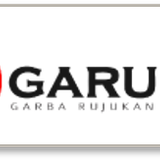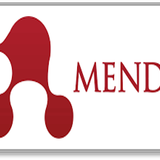The CEO Characteristics Factors Toward Tax Aggressiveness Of Family Companies In Indonesia
DOI:
https://doi.org/10.24912/ja.v26i1.817Abstract
This study examines the relationship between the characteristics of the CEO that has an effect toward tax aggressiveness of family companies in Indonesia. Purposive sampling is done to get samples, there are 70 samples with 280 total observations. Estimation model test is used in determining the proper estimation model regression, after all, REM is chosen as the estimation model. The study results that CEO tenure and risk preferences has an effect toward tax aggressiveness of family companies while educational background of CEO has no significant effect toward tax aggressiveness. More than 95% of companies in Indonesia are family companies. Government should do any actions to maximize state tax revenue. This study adds CEO risk preference as the development of prior research in order to examine another variable that might has an effect toward tax aggressiveness of family companies in Indonesia.
References
Aliani, K. (2014). CEO characteristics and corporate tax planning evidence from US companies. International Journal of Managerial and Financial Accounting, 6(1), 49–59. https://doi.org/10.1504/IJMFA.2014.060508.
Anwar, M. (2015). Filsafat Pendidikan. Jakarta: Kencana.
Asri, I. A. T. Y., dan Suardana, K. A. (2016). Pengaruh Proporsi Komisaris Independen, Komite Audit, Preferensi Risiko Eksekutif Dan Ukuran Perusahaan Pada Penghindaran Pajak. E-Jurnal Akuntansi, 16(1), 72–100.
Astutik, D., and Venusita, L. (2020). The Influence of CEO’s Demographic Characteristics on Tax Aggressiveness in Family Firm. Jurnal Akuntansi Dan Keuangan, 22(1), 1–9. https://doi.org/10.9744/jak.22.1.1-9
Bhagat, S., Bolton, B. J., and Subramanian, A. (2012). CEO Education, CEO Turnover, and Firm Performance. SSRN Electronic Journal. https://doi.org/10.2139/ssrn.1670219
Duan, T., Ding, R., Hou, W., and Zhang, J. Z. (2018). The burden of attention: CEO publicity and tax avoidance. Journal of Business Research, 87(0), 90–101. https://doi.org/10.1016/j.jbusres.2018.02.010
Frank, Mary Margaret; Lynch, Luann J.; Rego, S. O. (2009). Tax Reporting Aggressiveness and Its Relation to Aggressive Financial Reporting.
Hambrick, D. C., and Mason, P. A. (1984). Echelons : of Reflection The Its Organization as Top a. Academy of Management Review, 9(2), 193–206.
Hanafi, Umi; Harto, P. (2014). Analisis Pengaruh Kompensasi Eksekutif, Kepemilikan Saham Eksekutif Dan Preferensi Risiko Eksekutif Terhadap Penghindaran Pajak Perusahaan. Diponegoro Journal of Accounting, 3(2), 1162–1172.
Hariyanto, F., dan Utomo, D. C. (2018). Pengaruh Corporate Governance Dan Kompensasi Eksekutif Terhadap Agresivitas Pajak (Studi Empiris Perusahaan Jasa Sektor Keuangan yang Terdaftar di BEI Tahun 2014 - 2016). Diponegoro Journal of Accounting, 7(4), 1–14.
Hertwig, R., Wulff, D. U., and Mata, R. (2019). Three gaps and what they may mean for risk preference. Philosophical Transactions of the Royal Society of London. Series B, Biological Sciences, 374(1766), 20180140. https://doi.org/10.1098/rstb.2018.0140.
Kakunsi, E., Pangemanan, S., dan Pontoh, W. (2017). Pengaruh Gender Dan Tingkat Pendidikan Terhadap Kepatuhan Wajib Pajak Di Wilayah Kantor Pelayanan Pajak Pratama Tahuna. Going Concern : Jurnal Riset Akuntansi, 12(2), 391–400. https://doi.org/10.32400/gc.12.2.17771.2017.
Martinez, A. L., and Ramalho, G. C. (2014). Family Firms and Tax Aggressiveness in Brazil. International Business Research, 7(3), 129–136. https://doi.org/10.5539/ibr.v7n3p129.
Novita, N. (2016). Executives Characters, Gender and Tax Avoidance: A Study on Manufacturing Companies in Indonesia. 15, 92–95. https://doi.org/10.2991/gcbme-16.2016.15.
Porter, M. E. (1980). Books by competitive strategy.
Price Waterhouse Cooper (PwC). (2014). Survey bisnis keluarga 2014. November 2014, (November), 1–35. Retrieved from https://www.pwc.com/id/en/publications/assets/indonesia-report-family-business-survey-2014.pdf.
Puspita, S. R., dan Harto, P. (2014). Pengaruh Tata Kelola Terhadap Penghindaran Pajak. Diponegoro Journal of Accounting, 3(2), 1–2. Retrieved from https://ejournal3.undip.ac.id/index.php/accounting/article/view/6172.
Putra, Edrick Purnama; Tjaraka, H. (2020). Tax Law Enforcement in Strengthening Tax Compliance Behavior of Individual Taxpayers. Jurnal Akuntansi, 24(1), 154. https://doi.org/10.24912/ja.v24i1.664.
Putri, R. O. W., dan Indriani, E. (2020). Pengaruh Kepemilikan Saham Eksekutif, Kompensasi Eksekutif dan Preferensi Risiko Eksekutif Terhadap Penghindaran Pajak. ADVANCE : Jurnal Akuntansi, 7(1), 64–75.
Ross, S. A; Westerfield, R. W.; Jordan, B. D.; Liim, J.; Tan, R. (2015). Pengantar Keuangan Perusahaan. Jakarta: Salemba Empat.
Sari, P., and Prihandini, W. (2019). Corporate Social Responsibility and Tax Aggressiveness in Perspective Legitimacy Theory. International Journal of Economics, Business and Accounting Research (IJEBAR), 3(04), 330–343. https://doi.org/10.29040/ijebar.v3i04.726.
Wicaksono, K., and Oktaviani, R. M. (2021). Effect of CEO Characteristics Toward Tax Aggressiveness : Overview of Indonesia Family Firms. Jurnal Ekonomi, XXVI(02), 179–195.
Wicaksono, K., Meita Oktaviani, R., dan Stikubank Semarang, U. (2021). Pengaruh Karakteristik Ceo Terhadap Agresivitas Pajak Dalam Perusahaan Keluarga. Jurnal Akuntansi, 16(1), 59–73.
Yuwono; Fuad. (2019). Pengaruh Corporate Governance Dan Kompensasi Eksekutif Terhadap Agresivitas Pajak. Diponegoro Journal of Accounting, 8(3), 1–12.
Downloads
Published
How to Cite
Issue
Section
License
Copyright (c) 2022 Jurnal Akuntansi

This work is licensed under a Creative Commons Attribution-NonCommercial-ShareAlike 4.0 International License.
This journal provides immediate open access to its content on the principle that making research freely available to the public supports a greater global exchange of knowledge.

This work is licensed under a Creative Commons Attribution-NonCommercial-ShareAlike 4.0 International License



















